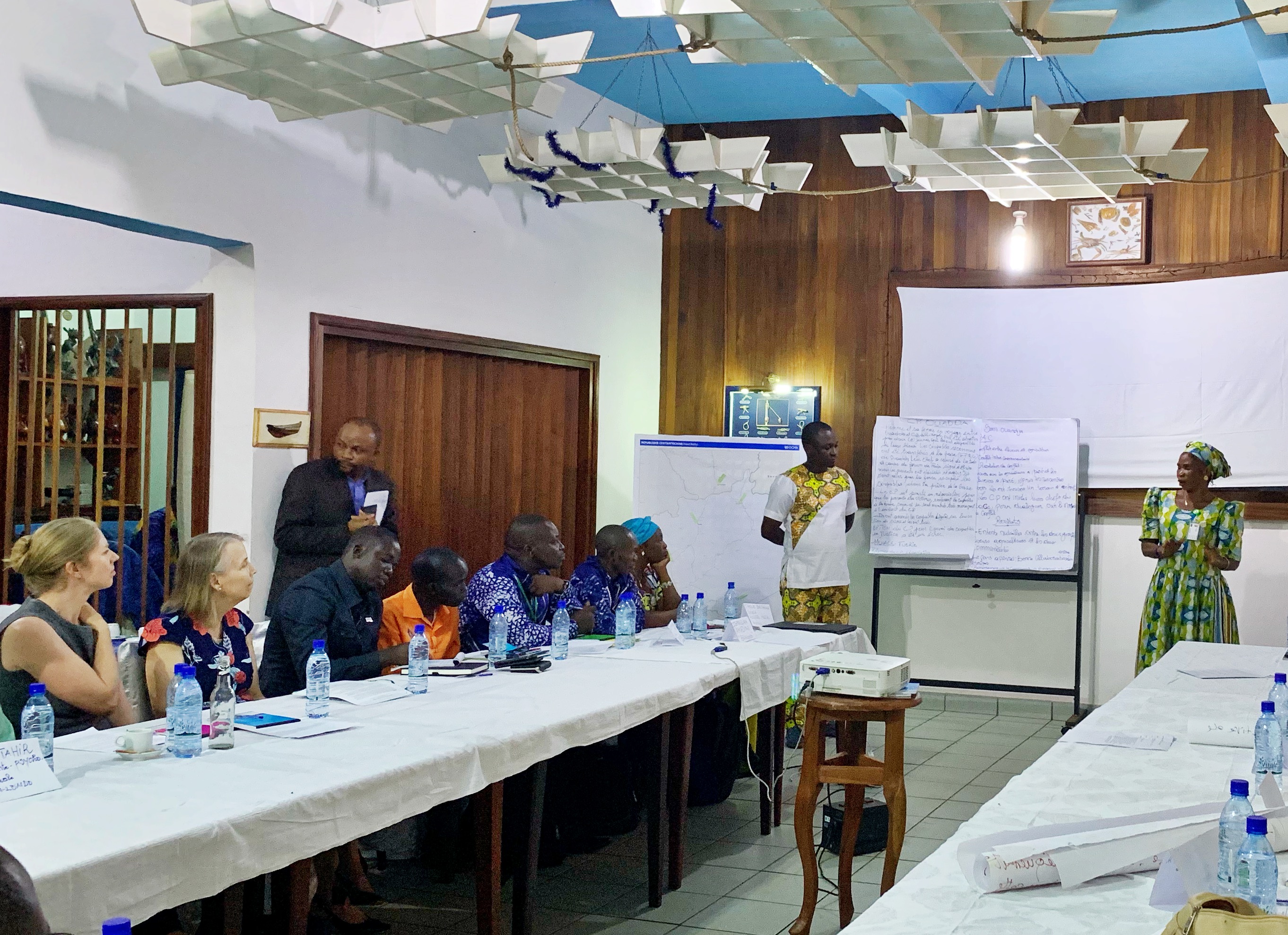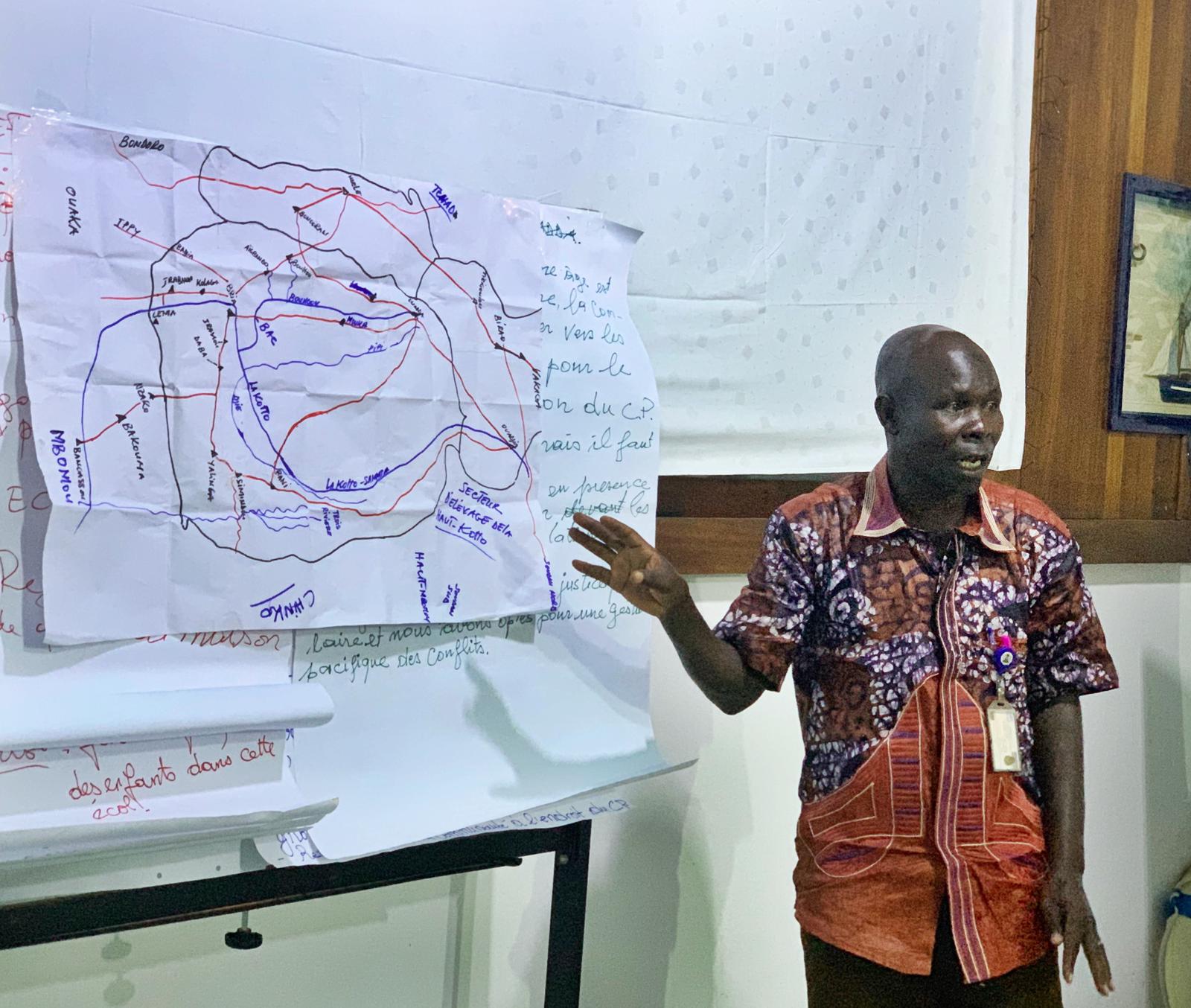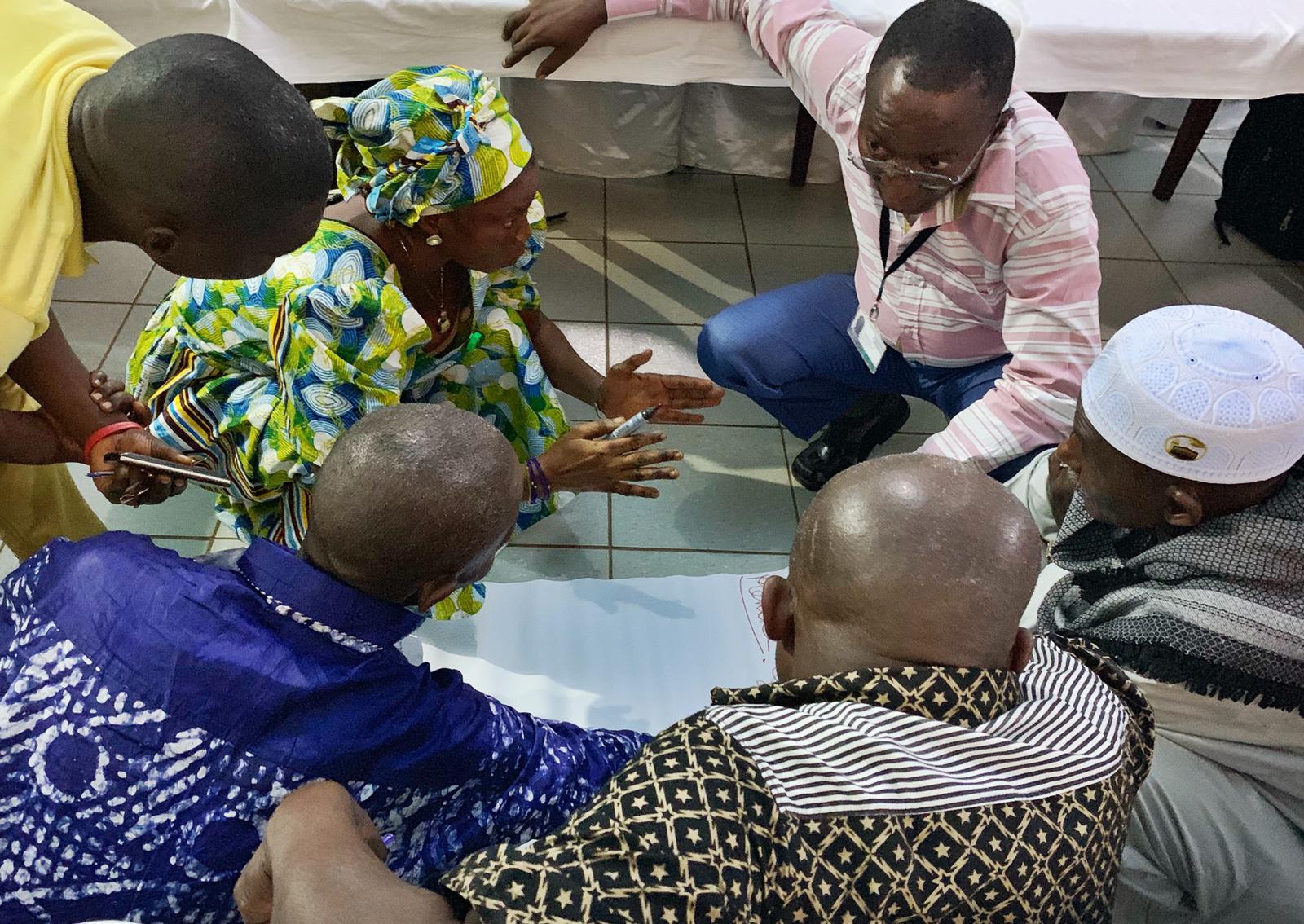The most effective solutions to violence and exploitation will be crafted by a diverse and collaborative community, with those most affected by injustice at the head of the table.
As part of a U.S. Department of State-funded project, Invisible Children is working with local partners to equip eight communities in and around the town of Bria, in eastern Central African Republic (CAR) with tools to reduce violence, report human rights abuses, and advocate for the needs of their communities. In June, representatives of locally-led Peace Committees from these communities attended a workshop hosted by Invisible Children in CAR’s capital, Bangui.
During the workshop, community representatives had the opportunity to directly put advocacy strategies developed as part of the State Department project into practice during a meeting with the U.S. Ambassador to CAR, Ms. Lucy Tamlyn, who participated in part of the workshop.

During her visit, Ambassador Tamlyn listened to community representatives from some of the most remote and vulnerable parts of CAR speak about the challenges facing their community and the work they are doing to address those challenges. She was able to engage with these local leaders on issues like gender-based violence, violence against civilians, and the impact of tensions between farming and pastoralist communities.
For example, one local leader spoke about how he and the local Peace Committee were able to collaborate with rangers from the nearby Chinko Reserve to respond to the threat of a group of Lord’s Resistance Army fighters who were abducting civilians near the community.

Each of the communities participating in the State Department project has been connected to Invisible Children’s Early Warning Network, which allows them to rapidly share life-saving security information with one another. In addition, over the last year, Invisible Children and our local partner, Bria Londo, have worked with each of the eight communities to develop individualized action plans designed to help them address the unique challenges their communities face and safely prevent and respond to security threats and human rights abuses.
At the workshop, Peace Committee members were able to share their action plans and experiences with one another and collaborate on solutions to address challenges that impact them all. Participants spent time at the workshop discussing their successes and setbacks over the last year and provided each other with advice on how to improve strategies for preventing or responding to violence and collaborate on new ideas to improve security across the region. After the workshop, many of the participants expressed that this not only helped them improve their plans but also contributed to a greater sense of regional solidarity between the communities who were represented at the workshop.

In addition to facilitating collaboration between the project communities, the workshop was also designed to strengthen the capacity of participants to effectively advocate for the needs of their communities on local, regional, and national levels. Invisible Children partnered with the Observatoire Centrafricain des Droits de l’Homme (OCDH), a Central African advocacy organization, who trained the Peace Committee representatives on strategies to advocate for their communities.
We’re incredibly grateful to Ambassador Tamlyn and to the State Department for investing in programs that support community-led solutions to prevent violence and atrocities against Central African civilians. Mostly, we’re grateful to work with the incredible Peace Committee leaders who not only participated in this workshop, but who do the hard work of peacebuilding every day in their communities.
Think people should hear about this?